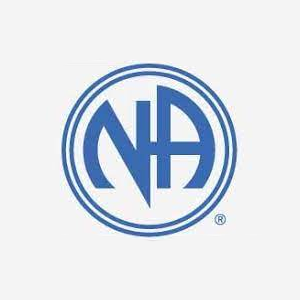Drug & Alcohol Rehab in Beverley

How Does Rehab Work?
Rehab involves holistic strategies that are created to address individual addiction with support, wellness methods, and steps to restoring balance. Clients are introduced to educational, supportive, and therapeutic programmes that are led by experienced and professional therapists. Along with individual therapy, individuals can benefit from the support received from group sessions. Addictions are treated through a residential or an outpatient programme. If you enter an inpatient rehab programme, the programme requires that you stay inside the centre or the facility with limited access to the outside world. Outpatient services are an option for those with less severe dependencies and will meet with a counsellor weekly while attending work commitments and staying at home.
What Happens During Residential Rehab?
When you are ready to enter rehab for drug and/or alcohol addiction, it is a brave step towards recovery. Although achieving balance and breaking the cycle of dependence takes some time, it can be achieved. To help you make an informed decision concerning rehab, we look at the options available and what to expect during rehab.
Prior to entering treatment, every individual will be assessed by a medical professional. The aim is to create a treatment plan suited to individual health and wellness needs. This is particularly important for those with a history of addiction and comorbid mental conditions including depression, anxiety or bipolar disorder.
The next part of treatment is detox. Detox assists with the removal of harmful substances from the body. It may be vital that it is medically supervised to manage withdrawal symptoms. This is especially true for benzodiazepine and alcohol dependency. The final phase of the programme is the treatment itself (therapy). Individuals can then enter inpatient or outpatient treatment.
Therapy is an important part of rehab and every aspect of addiction treatment should be tailored to address individual backgrounds, addictions, and circumstances. Interventions can range from private counselling and cognitive behavioural therapy to developing coping strategies, skills, and attending group meetings.
1. Assessment

For any person entering rehabilitation, an assessment will be provided. It is a normal procedure meant to put your mind at ease as the specialist looks for specific behaviours, previous mental health problems, and overall health. In a residential programme, it is not uncommon to have an admissions screening performed by telephone before booking you into treatment. Telephone assessments allow the treatment centre to determine the right programme for your needs. It also provides staff with information to customise support services during detoxification.
To help you or someone you know, receive the best possible therapy for addiction and substance use, it is important to receive an individual assessment by a dedicated professional. The assessment will assist the course of therapy including treatment for anyone with comorbid illnesses such as anxiety.
2. Detox

Detox involves the cessation of drugs and alcohol from the body. With professional assistance, it is safely facilitated and is most commonly monitored in a residential rehab because of the risks associated with withdrawal.
The reason medical detoxification from substances is advised is owed to the difficulties and the nature of withdrawal symptoms that may occur during this time. Without reliance on a professional service and medical attention, the risk of relapsing is increased. Individuals who receive detox and an assessment will be required to participate in a therapeutic programme that involves inpatient rehab or outpatient services.
3. Therapy

Therapy involves the one-on-one and group sessions you will attend with a qualified therapist, counsellor, and support staff. Treatment is provided in both a residential rehab or as part of an outpatient service. The direction for therapy will depend on individual circumstances.
Step by Step Process for Residential Rehab
To understand your medical and mental health history.
Arrange a suitable date to begin your journey to recovery.
Begin the managed withdrawal process from substances including alcohol.
To understand the root cause of addiction and how to overcome it.
Aftercare is provided to help manage the risk of relapse.
To help heal the wounds that addictive behaviour has caused others.
Find your Nearest Rehab Centre in Beverley
The nearest rehab centre is Yorkshire Community Rehabilitation.
Address: Yorkshire Community Rehabilitation, 4 St. Johns Ave, Bridlington YO16 4NG
Call 0333 4444 432 to discuss your alcohol or drug rehab requirements and any other questions you may have about the process of residential rehab.
Outpatient Addiction Services in Beverley
Inpatient or outpatient options for dependence can be determined by your budget requirement & life circumstances. Nevertheless, it is an individual process that requires commitment and awareness to succeed. To help you understand these different options, we look at outpatient addiction services compared with residential treatment.
An outpatient programme does not require you to remain at the centre for therapy. If you have work, family, or other commitments, outpatient programmes allow you to focus on these commitments while visiting a centre or counsellor to receive addiction therapy and other support services.
If you are interested in receiving outpatient care, it is vital to find the right programme for your needs. Outpatient programmes range from paid private counselling to free charitable organisations that specialise in substance addictions.
The Benefits of Outpatient Services
Private Outpatient practices focus on individual support that is tailored to suit the interests of every patient. – Outpatient treatment is a more flexible service that can help many individuals regardless of financial or work commitments. It includes the attendance of weekly sessions with a qualified therapist or counsellor. – It is a more cost-effective treatment programme compared to residential addiction treatment.
The Challenges of Outpatient Services
While outpatient services play an important role in accessible addiction treatment, it is also associated with a higher relapse potential. While free outpatient services do exist through the NHS or UK-based charities, waiting times are to be expected and treatment tends to be more generic.

How Much Does Rehab Services Cost in Beverley?
You can expect to pay between £1500 – £4000 per week for residential rehab. If you cannot afford a private addiction plan, you can rely on free and more economical recovery programmes to address your addiction issues. There are a number of organisations that assist those struggling with free and affordable services throughout the UK.
The NHS and charities including Turning Point will need a self-referral to be considered for therapy. You will also find many other affordable services (such as private counselling) or free therapies and community-supported services for those with drug or alcohol dependencies. These groups include AA or Alcoholics Anonymous, Narcotics Anonymous, and Cocaine Anonymous.
Support Groups in Beverley

Living the Programme Group
Salvation Army 94 Beverley Road Hull East Riding of Yorkshire HU3 1YA

Beverley
Main Hall, Toll Gavel United Church, Toll Gavel, (Walkergate entrance) HU17 9BT

Cottingham
Zion United Reform Church, Hallgate HU16 4BB
The Pros and Cons of Seeking Treatment in Your Local Area
Pros
1. You are familiar with the area which may provide a layer of comfort/safety.
2. Loved ones can easily travel to visit or are close by.
3. You may save on the costs of travelling long distances for treatment, or free services may only be offered in your area of residency.
Cons
1. A local environment means access to drug dealers or other triggers. This is more of a concern if you opt for outpatient programmes.
2. Failing to consider locations outside your local area could mean missed opportunities for more valuable and rewarding programmes.
3. Addiction treatment services that are close by don’t always offer the best standard of rehab.
The CQC website will provide information and ratings on a service in the event you are unsure regarding a particular service.

